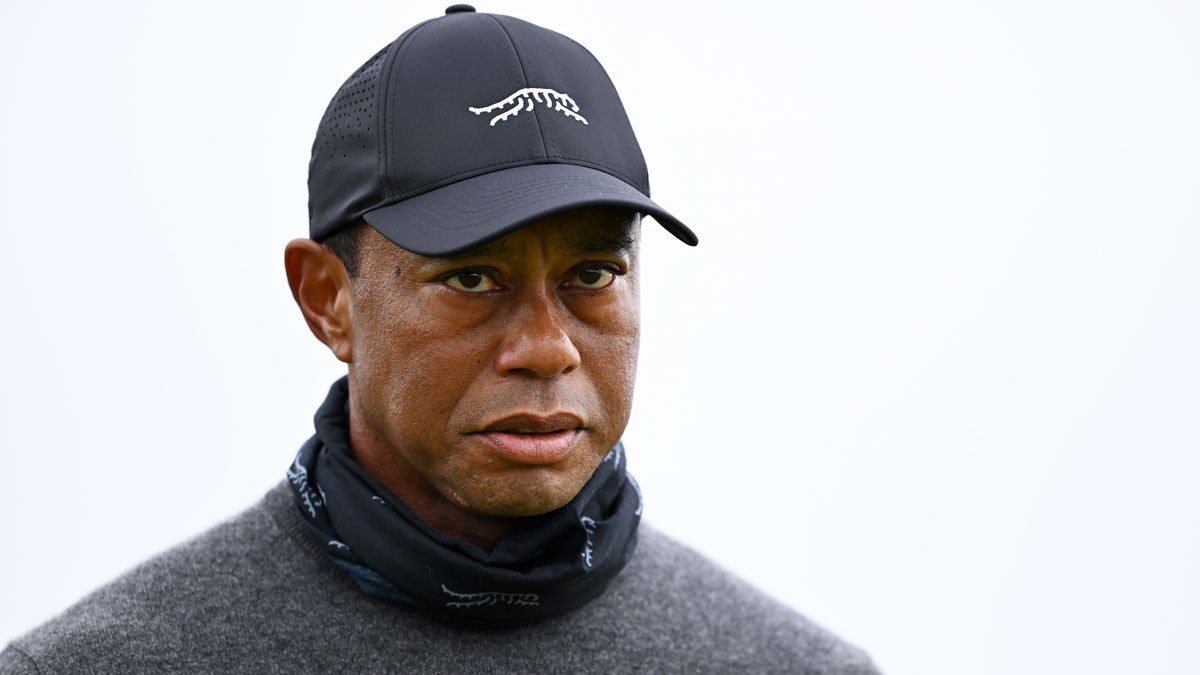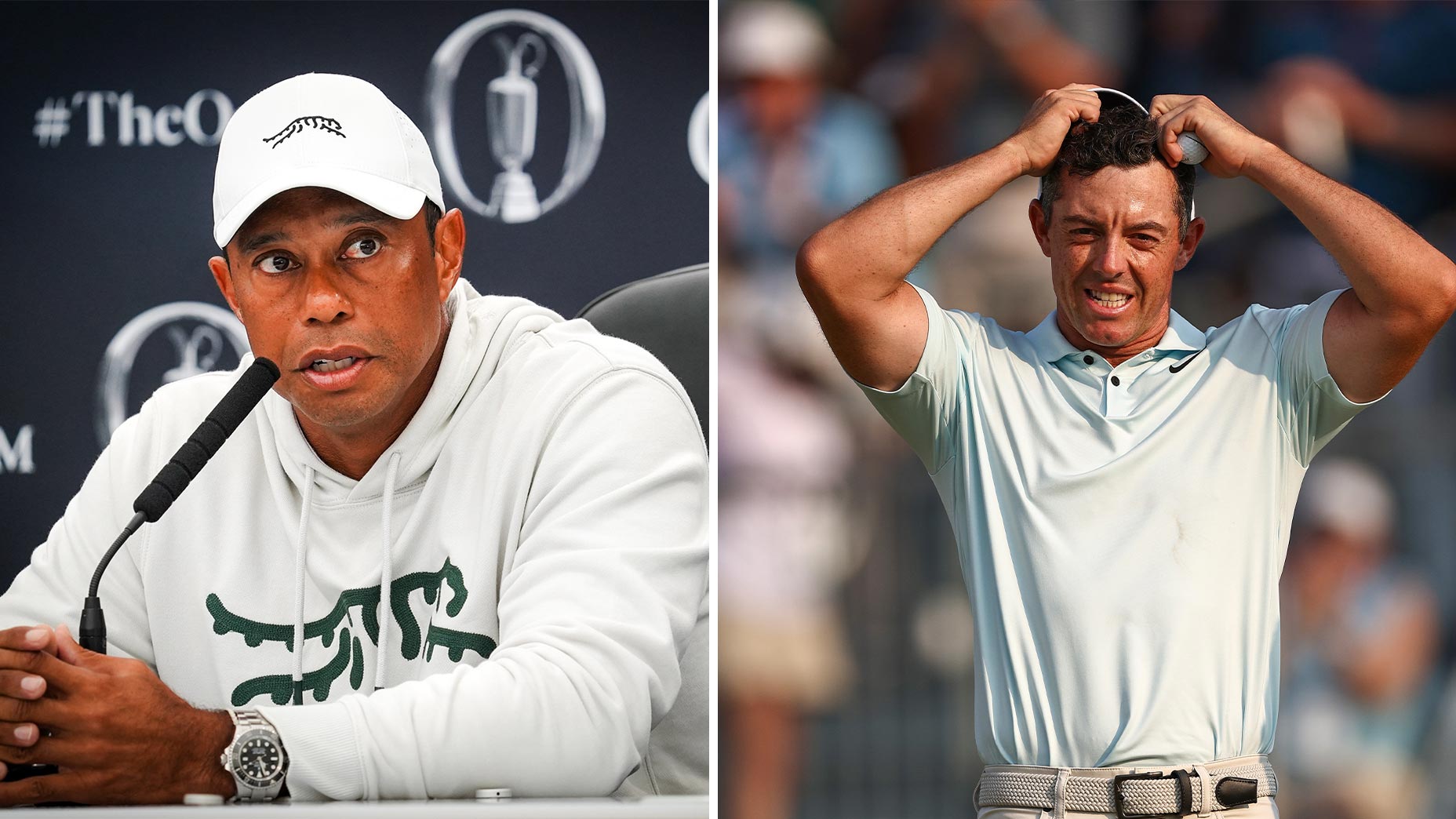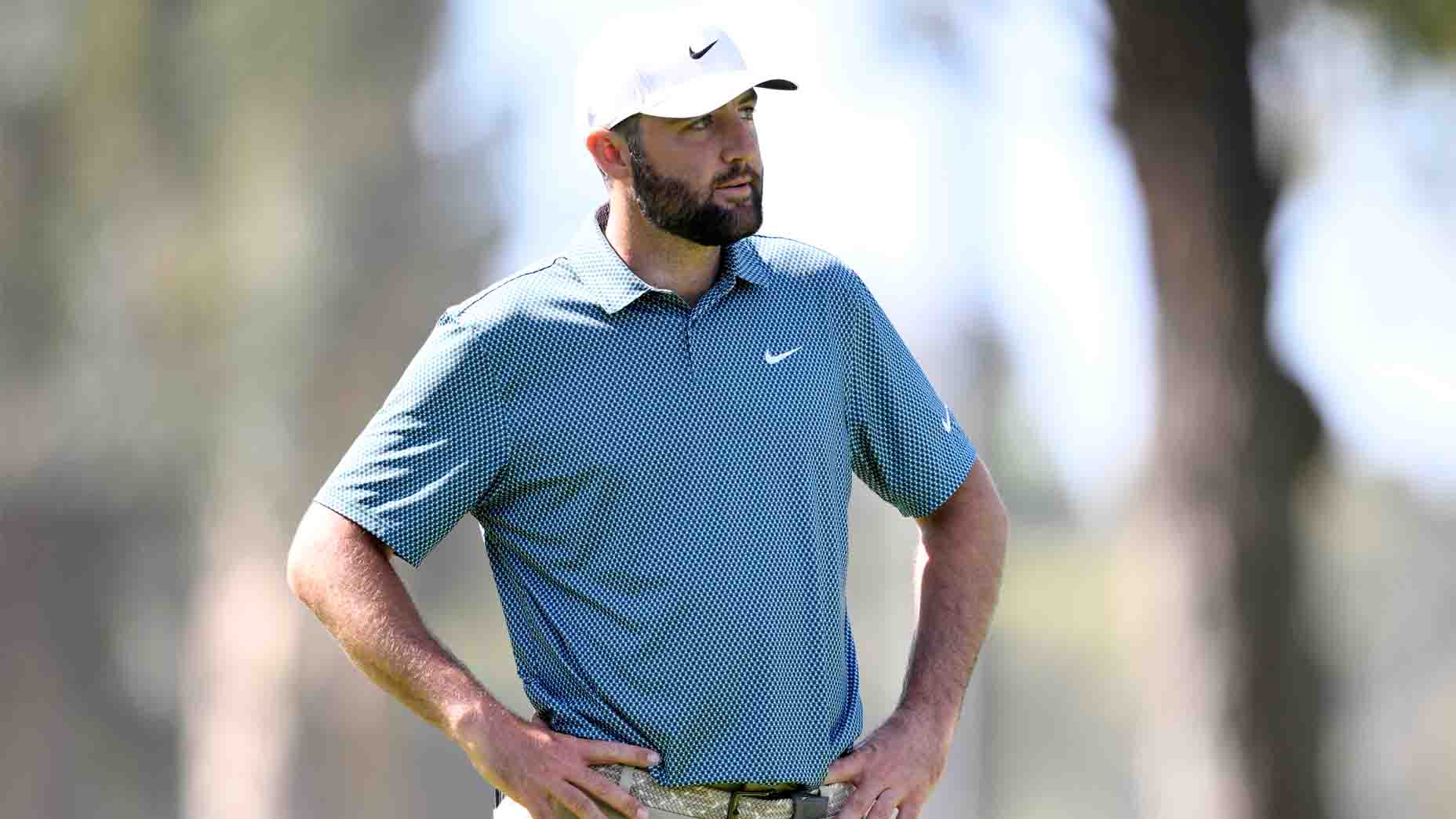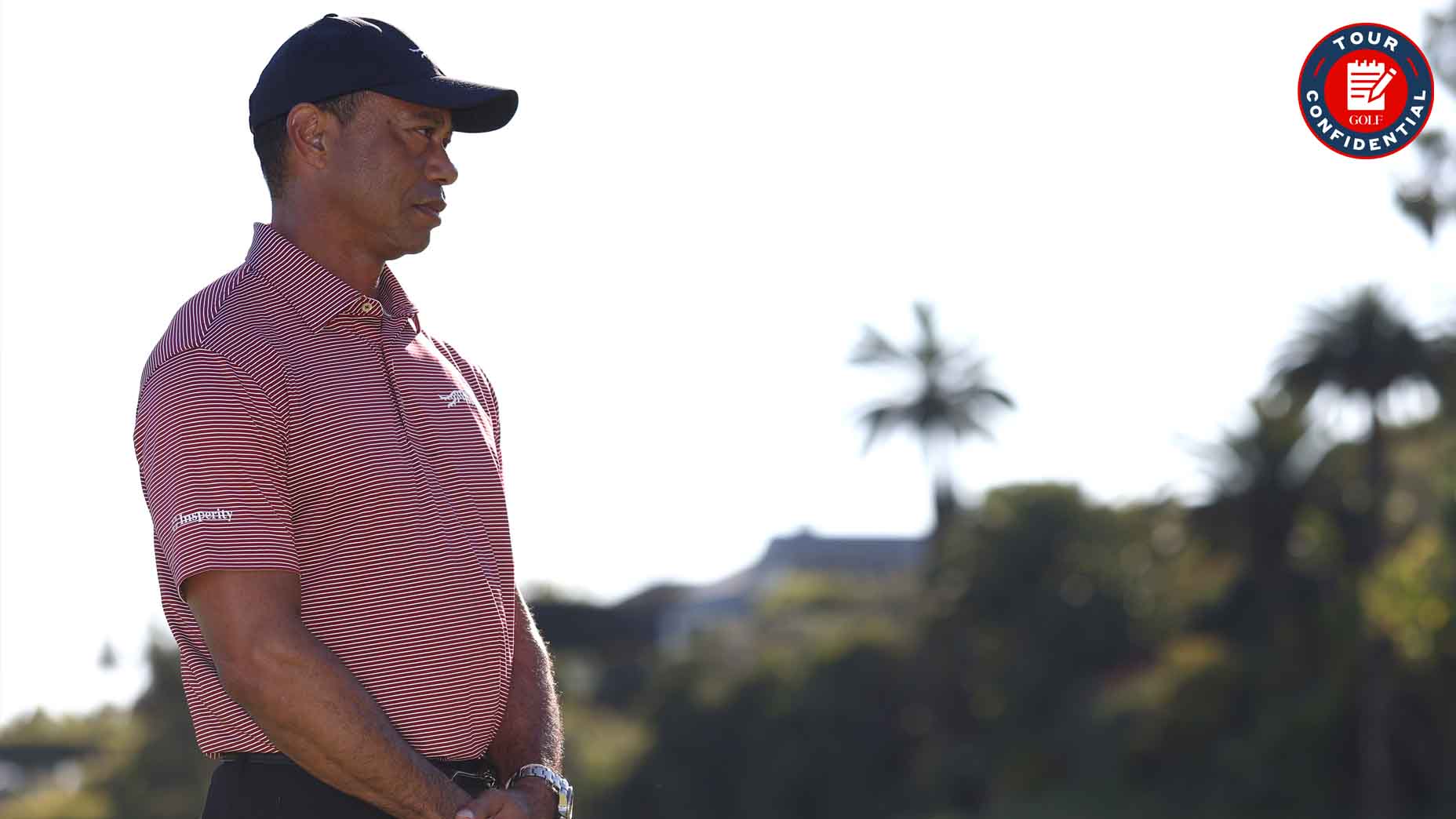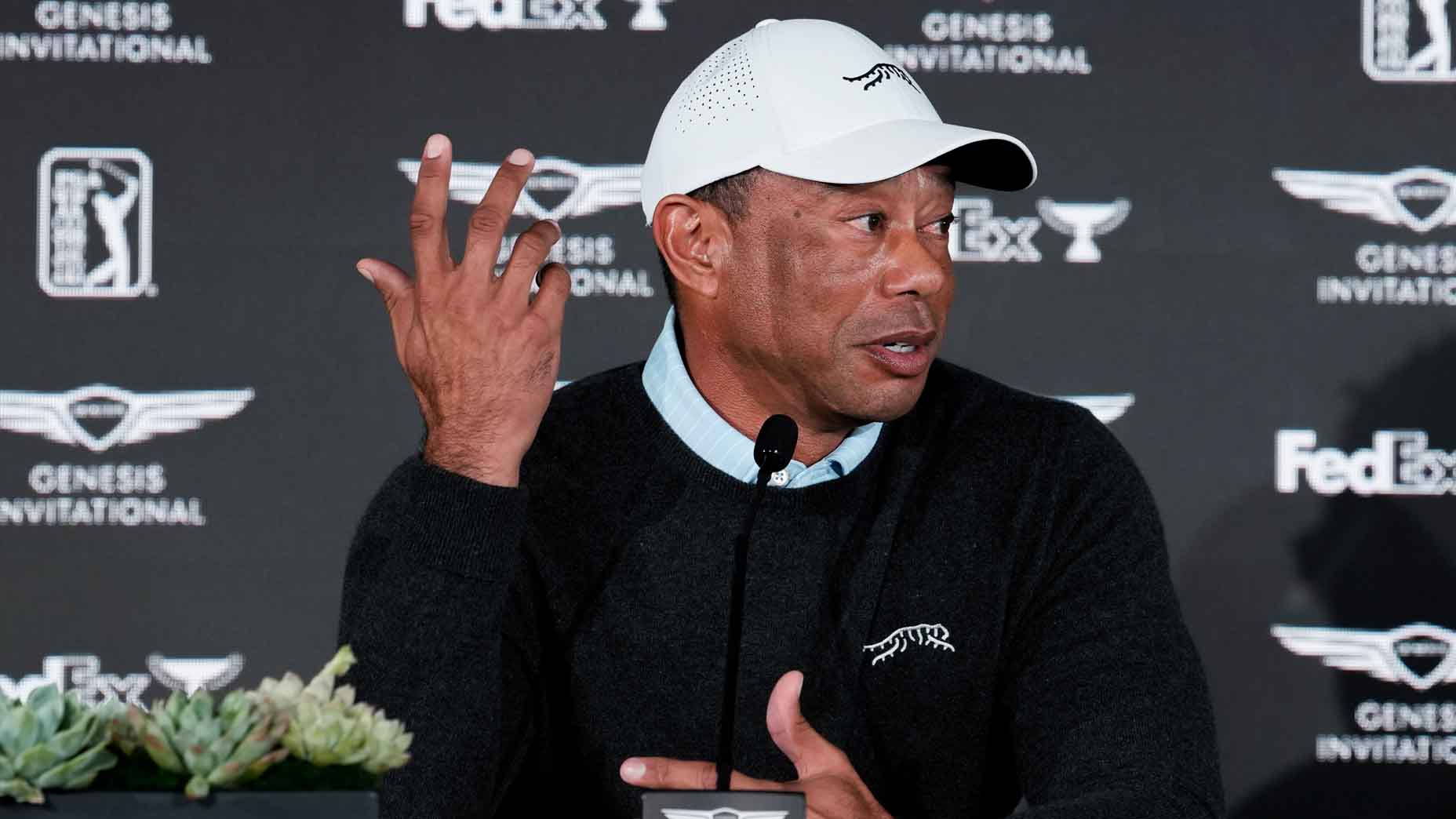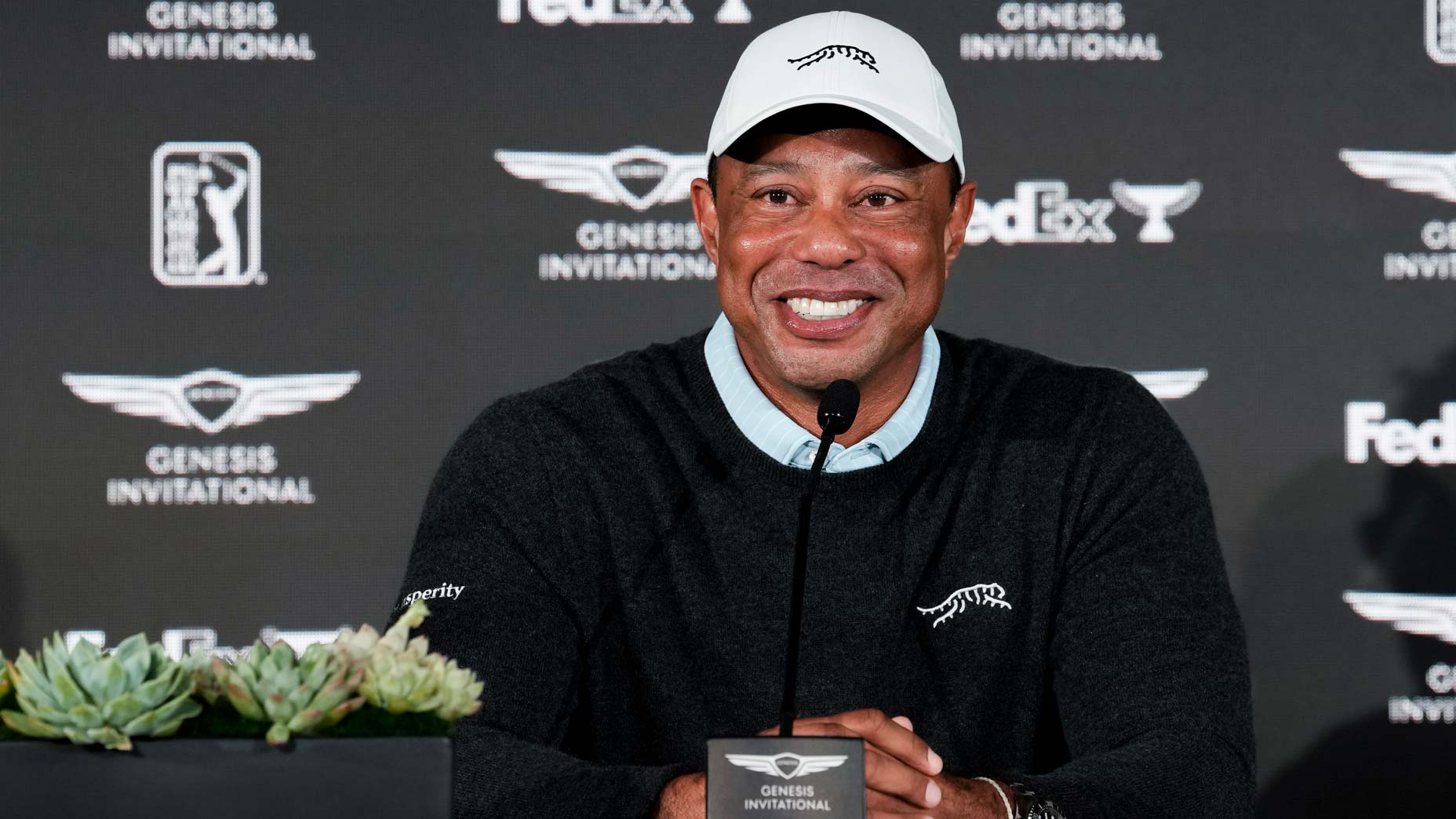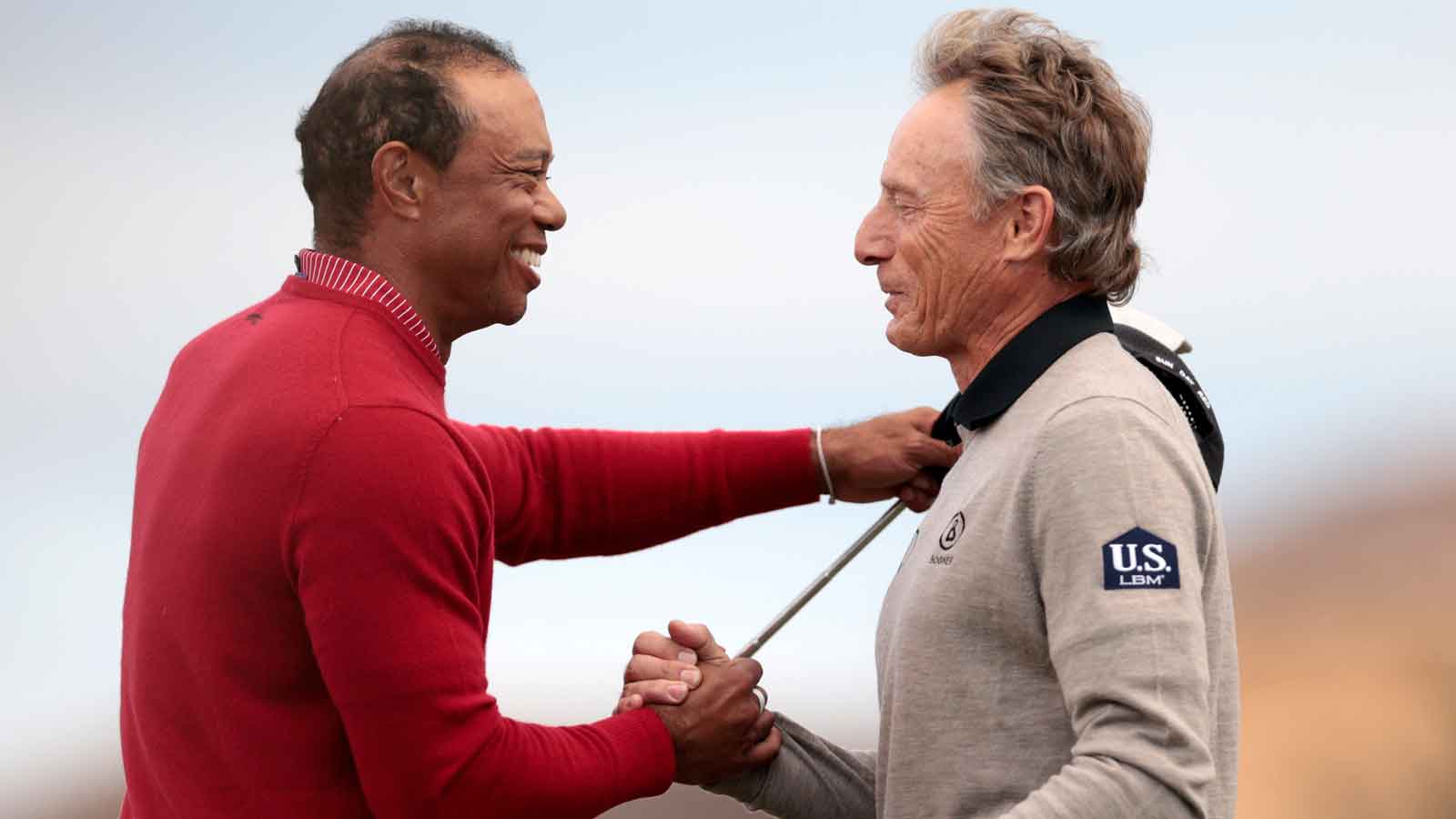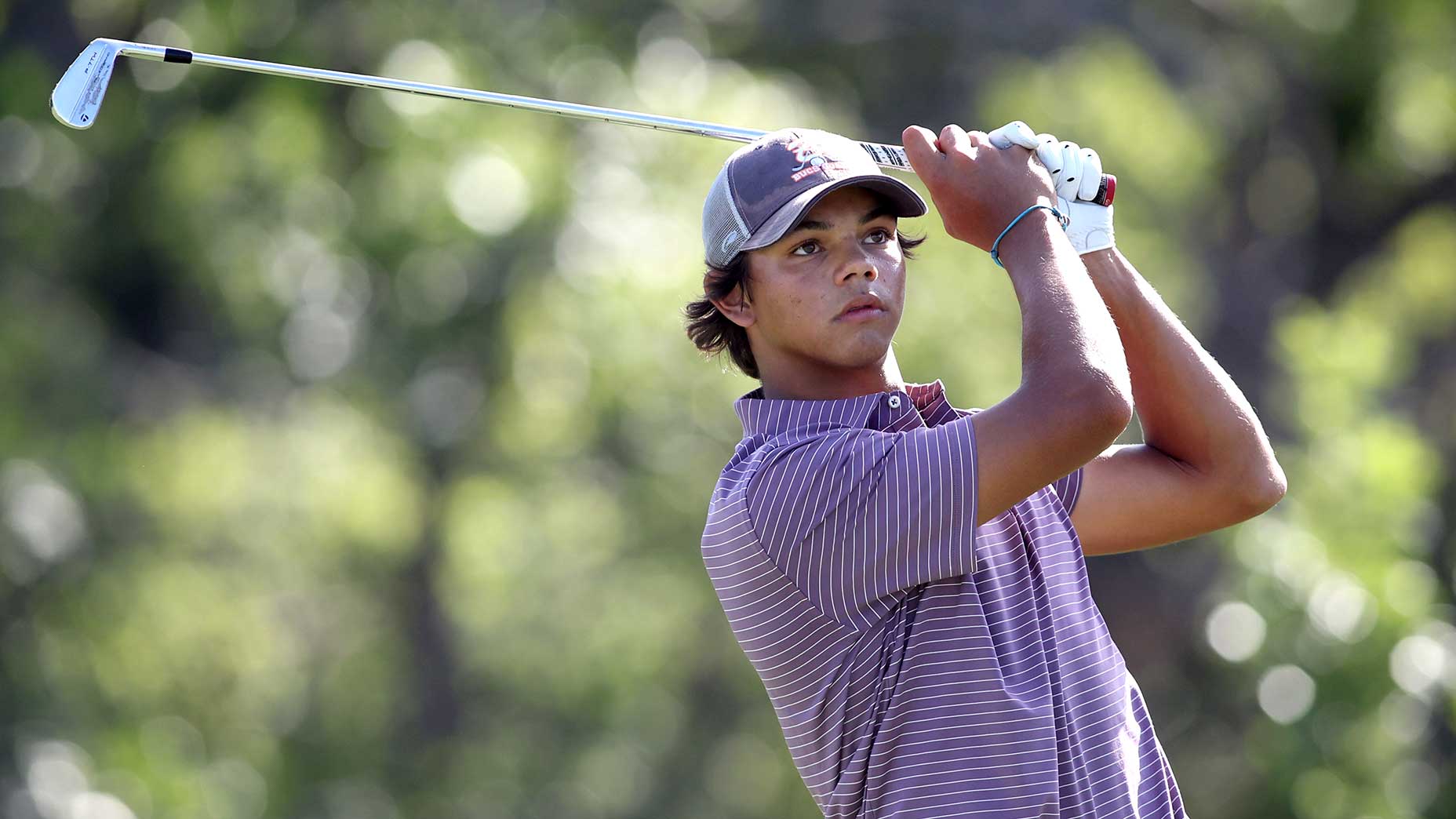TROON, Scotland — Tiger Woods was cold. It was 2:30 on a dreary Thursday afternoon, and the golfing legend, inching closer to 49 every day, was heading to the first tee to start play in his 23rd British Open. He was dressed out of the Henry Cotton playbook, in black and gray, except Cotton played much of his Open golf wearing a silk necktie, and Woods was wearing a neck warmer. Cotton won the Open three times. Woods has, too.
It was a classic look. Black shoes, black rain pants, black cap, gray sweater. An I-mean-business demeanor. He made a par on 1, dead into the wind. His gait was perfect.
His playing partners were Patrick Cantlay and Xander Schauffele. All three are native Californians. All three use the interlocking grip. Woods, in an off week, is often on phone calls with Cantlay. They’re both on the PGA Tour Policy Board. On the Royal Troon practice green, Woods casually welcomed Schauffele to the club, the Society of Grand Slam Winners. No, not a real thing, except that it kind of is. Woods asked Schauffele how it felt, knowing the answer as well as anybody. Schauffele needs 14 more majors to catch Woods.
Woods made a par on 2. His swing, to the eyes of this 90-shooter, looked better than it has in a long time, more flowing, with a more natural release of his hands through impact. He looked more like young Tiger, more like his 15-year-old son, Charlie Woods, who is playing in his first USGA event, the U.S. Junior Amateur, next week at Oakland Hills. Tiger won that event three times.
Woods made a birdie on 3. His longtime agent, Mark Steinberg, was watching intently, on a flatscreen TV in a corporate tent, out of the wind and the misting rain.
As Woods marched up the fairway on the par-5 4th, the threesome waiting on the adjacent 16th tee — Thirston Lawrence, Dan Bradbury and Elvis Smylie — stopped their waggling to take a look. This was a proper par-5, impossible to reach in two shots. The greens were slow and the air was heavy and no shot was routine. No shot was like anything you could ever play at home. Woods missed the green and made bogey.
There was almost no conversation within the group. John Wood, the former caddie and future manager of the American Ryder Cup team, walked with the group, as an on-course reporter for NBC Sports. Russ Steib, a veteran caddie and a veteran spotter for NBC, did, too. There was a small army of police officers and R&A crowd control officers out there, too. Tiger has been playing tournament golf like a caged animal for 25 years. It’s all he knows. Nobody was delirious. It’s hard to be delirious when you’re trying to keep your cellphone steady in the name of keeper video.
Woods made a double on 5, a par on 6, a bogey on 7. Eight is the short par-3, with its itty-bitty green. Describing the strategic excellence of the hole the other day, Woods said, “Green good, missed green bad.” He missed the green and made bogey. With a par on the 9th, he went out in 40.

Colin Montgomerie, in his Colin Montgomerie way, suggested in a recent interview (with The Times of London) that it was time for Woods to retire. It is hard to see Woods shoot so many nine-hole scores in the 40 range in recent years, not that he plays often. But if the only thing you saw on Thursday was Woods, in a viewfinder, preparing for shots and playing shots, you would have thought he was still an elite player, not No. 874 in the World Golf Ranking. This is not late-career Jake LaMotta, stumbling around. This is a man who couldn’t spell quit if you spotted him the first three letters. Maybe you remember the 10 he made on the par-3 12th at Augusta in 2020. He then played the last six holes in five under.
On the back nine, Woods took off his neck warmer. He made a birdie on 13. He had the honor on the par-3 14th. The gallery was thin by that point. The day was only colder and danker, but it wasn’t raining and the wind had subsided. A marshal on the hole was a 75-year-old man named Brian Rae who plays the public courses in Troon. He had seen Woods make thousands of shots on TV. Now he was seeing him in the flesh for the first time. He positioned himself almost directly behind Woods as Woods played a mid-iron from 202 yards to the heart of the green.
“You could see before he played the shot, he stared down the hole for almost a minute,” the marshal said. “His manner was intense.”
Welcome to Tiger’s world, Marshal Rae. That is what he does.
I asked Mr. Rae if he knew the name Joe DiMaggio.
“Oh, aye,” he said. “He was married to Marilyn Monroe.”
I mentioned to him the exchange the great Yankee centerfielder once had with a reporter, who asked him why he played so hard.
“Because there might have been somebody in the stands today who’d never seen me play before, and might never see me again,” DiMaggio said, at least in the legend of the exchange.
“Oh, aye,” Mr. Rae said. “That fits here.”
It might, it might not. But Woods can’t do casual. Even when he’s shooting 79, as he did on Thursday.
The round took five hours, more than that. As Woods walked up 18, there was a hint, a mere hint, of a hiccup in his gait. The stands were half-full, if that, but the fans stood and applauded in that Scottish, this-is-serious way. Tiger raised his hands. In the Royal Troon clubhouse, immediately behind the 18th green, members were pressed against the closed windows, for an unobstructed view.
Tiger Woods dishes unusually candid perspective on Rory McIlroy collapseBy: James Colgan
When he talked briefly to reporters at the end of his round, Woods was perspiring. All through the round, he drank from a water bottle. But his eyes were not watery and he was not sniffling, as he often is when he plays golf in the British Isles. I wondered where his mind goes, during a long round like that, while shooting 79. I asked him if he thought about Charlie’s game and his upcoming USGA event while he was on the course.
“Not when I’m playing, no,” Woods said. “When I’m working, I’m working. When I’m at home, away from the golf course, yeah, I do talk to him. We’re working on getting his game right.
“Wish I could see him hit balls or play and get ready like we normally do for an event. But I’m a little bit busy this week.”
Thursday was over. Schauffele noted that Woods only plays golf in majors, on the hardest courses there are in professional golf. He said it respectfully, but the implication was obvious: Nobody, not even Tiger, can play just four or so times a year and expect to catch lightning.
“He’s only playing major championships,” Schauffele said. “He’s making it as hard on himself as possible, and I know he’s hard on himself, too. It’s just hard.”
Yep.
A few minutes earlier, Woods had said this: “Hopefully next year will be a little better than this year.”
The second round of this 152nd Open might be Woods’s last competitive round of the year. If it is, it won’t be for lack of trying. Woods at 48 and 38 and 28 is essentially unchanged. He’s lost golf skill, that’s all.
Michael Bamberger welcomes your comments at Michael.Bamberger@Golf.com
